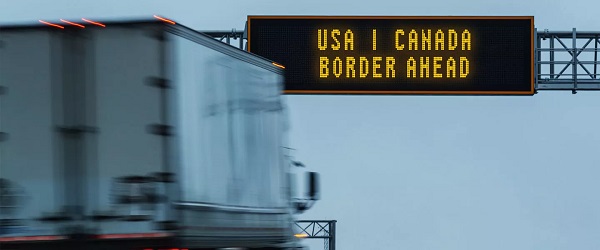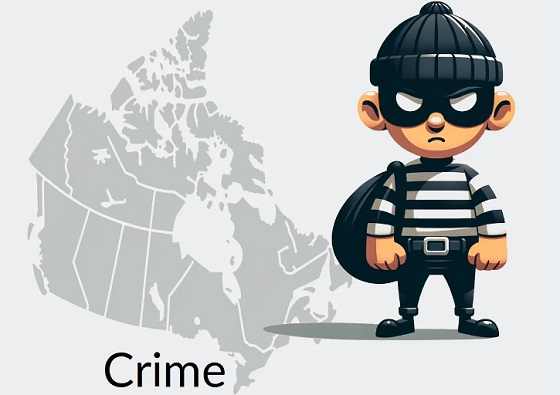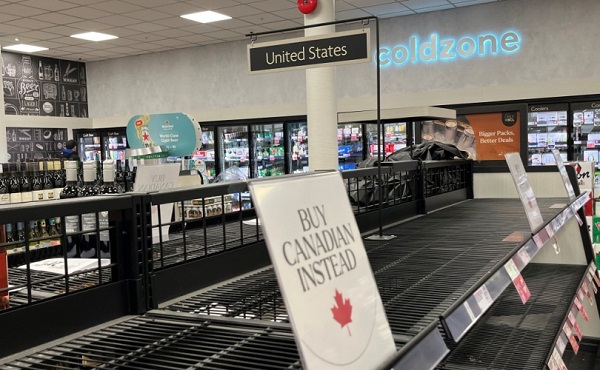Business
Internet bills should itemize Justin Trudeau’s new streaming tax

From the Canadian Taxpayers Federation
Author: Jay Goldberg
If streaming services want to fight back against the Trudeau government’s new streaming tax, which will cost them five per cent of their revenue each and every year, they need to be honest with customers and put the tax right on the bill so subscribers see it and understand how much it’s costing them.
The truth is this is a tax. It will cost Canadians money. And everyone knows it, including the prime minister. Maybe not the prime minister of 2024 but certainly the prime minister of 2018, when, in response to NDP pressure to tax streaming services, Justin Trudeau sensibly refused, saying: “The NDP is claiming that Netflix and other web giants are the ones who will pay these new taxes. The reality is that taxpayers will be the ones to pay those taxes.”
Well, that was then and this is now. Trudeau’s 2018 logic has been thrown out the window. The Canadian Radio-television and Telecommunications Commission announced last week it is “requiring online streaming services to contribute five per cent of their revenues to support the Canadian broadcasting system.” That means streaming services like Apple Music, Netflix, Spotify, YouTube and Disney+ will be hit with a new tax. And, as Trudeau pointed out in 2018, Canadians will be the ones paying the bill.
The government’s own analysis says the new measure will cost Canadians $200 million per year. When businesses are forced to hand over hundreds of millions of dollars to the government, they can’t just eat the cost. As Trudeau himself said, this streaming tax will be passed onto consumers. The industry agrees. Canadians should be “deeply concerned” with the government’s decision to “impose a discriminatory tax,” said Digital Media Association President and CEO Graham Davies, adding the move will only worsen the “affordability crisis.”
Translation: prepare for higher prices.
The streaming services targeted by these new measures shouldn’t take them lying down. They shouldn’t cooperate with the government’s plan to hide the new tax. Netflix, Spotify, Apple, Disney, YouTube and all the rest need to be honest with their customers about why prices are going up: the Liberals’ streaming tax.
Conservative Leader Pierre Poilievre recently wrote an op-ed in this paper telling corporations not to rely on lobbying behind the scenes to influence policy. If businesses want policies to change, they need to convince voters so voters will in turn convince politicians. Canadians have to understand why it’s going to cost them more to watch movies and listen to music. They are fed up with tax hikes. But only if they know what’s happening can they make politicians change course. That’s the right way to stop the streaming tax.
In case it’s not already obvious, simply sitting back and waiting for the next election isn’t good enough. “Obviously, my future government will do exactly the opposite of Trudeau on almost every issue,” wrote Poilievre in his NP op-ed. “But that does not mean that businesses will get their way. In fact, they will get nothing from me unless they convince the people first.”
That’s precisely why these streaming services, from Apple and Google to Spotify and YouTube, need to be honest with their customers about the streaming tax. They should add a separate item on every subscriber’s bill showing exactly how much Trudeau’s streaming tax is costing. They should direct angry calls to MP offices instead of customer service lines.
When everything feels unaffordable, a night in with a movie or a walk with a favourite album shouldn’t get hit with yet another tax hike.
Business
DOGE discovered $330M in Small Business loans awarded to children under 11

 MxM News
MxM News
Quick Hit:
In a bombshell revelation at a White House cabinet meeting, Elon Musk announced that the Department of Government Efficiency (DOGE) had uncovered over $330 million in Small Business Administration (SBA) loans issued to children under the age of 11.
Key Details:
- Elon Musk stated that DOGE found $330 million in SBA loans given to individuals under the age of 11.
- The youngest recipient was reportedly just nine months old, receiving a $100,000 loan.
- SBA has now paused the direct loan process for individuals under 18 and over 120 years old.
Diving Deeper:
At a cabinet meeting held Monday at the White House, President Donald Trump and Elon Musk detailed a staggering example of federal waste uncovered by the newly-formed Department of Government Efficiency. Speaking directly to ongoing efforts to eliminate corruption and abuse in federal agencies, Musk explained that the SBA had awarded hundreds of millions in loans to children—some of whom were still in diapers.
“A case of fraud was with the Small Business Administration, where they were handing out loans — $330 million worth of loans to people under the age of 11,” Musk said. “I think the youngest, Kelly, was a nine-month year old who got a $100,000 loan. That’s a very precocious baby we’re talking about here.”
DOGE’s findings forced the SBA to abruptly change its loan procedures. In a post on X, the department revealed it would now require applicants to include their date of birth and was halting direct loans to those under 18 and above 120 years old. Musk commented sarcastically: “No more loans to babies or people too old to be alive.”
The discovery was just the latest in a series of contract cancellations and fraud crackdowns led by DOGE. According to Breitbart News, DOGE recently canceled 105 contracts totaling $935 million in potential taxpayer liabilities. The agency’s website currently lists over 6,600 terminated contracts, accounting for $20 billion in savings.
The president praised Musk and DOGE for rooting out government inefficiencies, noting his administration was focused on “cutting” people and programs that were not working or delivering results. “We’re not going to let people collect paychecks or taxpayer funds without doing their jobs,” Trump said.
Also during the cabinet session, USDA Secretary Brooke Rollins revealed her department had eliminated a $300,000 program aimed at teaching “food justice” to transgender and queer farmers in San Francisco. “I’m not even sure what that means,” Rollins said, “but apparently the last administration wanted to put our taxpayer dollars towards that.”
These revelations highlight what many conservatives have long suspected—that during prior administrations, including under President Joe Biden, massive amounts of federal funding were funneled into unserious, ideologically-driven projects and mismanaged government programs. Under the Trump administration’s second term, DOGE appears to be living up to its mission: trimming fat, exposing fraud, and putting American taxpayers first.
Business
Why a domestic economy upgrade trumps diversification

From the Macdonald Laurier Institute
By Stephan Nagy for Inside Policy
The path to Canadian prosperity lies not in economic decoupling from the US but in strategic modernization within the North American context.
President Donald Trump’s ongoing tariff threats against Canadian exports has sent shockwaves through Ottawa’s political establishment. As businesses from Windsor to Vancouver brace for potential economic fallout, a fundamental question has emerged: Should Canada diversify away from its overwhelming economic dependence on the United States, or should it instead use this moment to modernize and upgrade its economic hard and software within the North American context? The evidence overwhelmingly supports the latter approach in which Canada reduces interprovincial trade barriers and regulations, builds infrastructure to move energy and other resources within Canada, and invests in Canadian human capital and relationships with the US to maximize synergies, stakeholder buy-in and mutual benefit.
The knee-jerk reaction to blame Trump’s economic nationalism misses a crucial point: America’s retreat from championing global free trade began well before his unorthodox political ascendance in 2016. The Obama administration’s signature Trans-Pacific Partnership (TPP) faced mounting bipartisan skepticism before Trump withdrew from it in 2017. Hillary Clinton, during her presidential campaign, explicitly stated she would oppose the deal, reversing her earlier support. “I will stop any trade deal that kills jobs or holds down wages, including the Trans-Pacific Partnership,” Clinton declared during a campaign speech in Michigan in August 2016.
When President Joe Biden took office, rather than resurrect the TPP, his administration proposed the Indo-Pacific Economic Framework (IPEF). Unlike traditional trade agreements, the IPEF conspicuously omitted market access provisions while emphasizing supply chain resilience and environmental standards. During the IPEF ministerial meeting in Los Angeles in September 2022, U.S. Trade Representative Katherine Tai specifically noted that the framework “moves beyond the traditional model” of free trade agreements.
These policy evolutions reflect a deeper transformation in American economic thinking: a bipartisan consensus has emerged around industrial policy aimed at rebuilding domestic manufacturing, securing critical supply chains, and maintaining technological leadership against authoritarian competitors such as China.
Prime Minister Justin Trudeau and his Cabinet fundamentally misunderstood these shifts, leading to a series of diplomatic missteps that have damaged Canada-US relations. Most damaging has been a pattern of public rhetoric dismissive of both Trump personally and his MAGA supporters more broadly.
In June 2018, following the G7 summit in Charlevoix, Quebec, Trudeau declared in a press conference that Canada “will not be pushed around” by the United States, characterizing Trump’s tariffs as “insulting.” This prompted Trump to withdraw his endorsement of the summit’s joint statement and label Trudeau as “very dishonest and weak” on Twitter.
Former Deputy Prime Minister Chrystia Freeland repeatedly aligned the MAGA movement with authoritarianism. In an August 2022 speech at the Brookings Institution, she characterized Trump supporters as part of a global “anti-democratic movement.” In October 2023, she went further, drawing parallels between MAGA and authoritarian regimes like Russia and China. These statements resonate poorly with nearly half of American voters who supported Trump in recent elections and are borderline disinformation with such exaggerated mischaracterizations of American voters.
Former Foreign Affairs Minister François-Philippe Champagne was caught on camera in December 2022 referring to Trump’s policies as “deranged” while speaking with European counterparts. The video, which social media users circulated widely, further inflamed tensions between the administrations.
Such diplomatic indiscretions might be dismissed as political theatre if they didn’t coincide with concrete policy failures. The Trudeau government neglected critical infrastructure projects that would have strengthened North American economic integration while reducing Canada’s vulnerability to U.S. policy shifts.
To illustrate, Japan and Germany approached Canada to secure liquefied natural gas (LNG) exports as part of their efforts to reduce reliance on Russian energy supplies. Japan expressed high expectations for Canadian LNG during Prime Minister Fumio Kishida’s visit, while Germany explored LNG opportunities during Chancellor Olaf Scholz’s visit, emphasizing the urgency of diversifying energy sources due to geopolitical tensions. However, Trudeau rejected these requests, citing a weak business case for LNG exports from Canada’s East Coast due to logistical challenges and lack of infrastructure. Instead, Trudeau shifted focus to clean energy initiatives and critical minerals, reflecting Canada’s evolving industrial policy priorities.
The economic relationship between Canada and the US represents perhaps the most thoroughly integrated bilateral commercial partnership in the world. The statistics alone tell a compelling story: daily two-way trade exceeds $3 billion, supporting approximately 2.7 million Canadian jobs – roughly one-in-six workers in the country.
This integration manifests in countless ways across industries.
For example, in automotive manufacturing, a single vehicle assembled in Ontario typically crosses the Canada-US border seven times during production. A Honda Civic assembled in Alliston, Ontario, contains components from both countries, with engines from Ohio and transmissions from Georgia integrated with Canadian-made bodies and electronics.
The energy infrastructure between the two nations functions essentially as a single system. The North American power grid delivers Canadian hydroelectricity to major US markets, while Canadian refineries process crude oil from both countries. TransCanada’s natural gas pipeline network serves both markets seamlessly, with approximately 3.2 trillion cubic feet flowing between the countries annually.
In aerospace, Bombardier’s commercial aircraft division collaborates with American suppliers like Pratt & Whitney and Collins Aerospace, creating integrated supply chains that span the border. Montreal’s aerospace cluster works in close coordination with counterparts in Seattle and Wichita.
Beyond traditional industries, American-Canadian technological collaboration has accelerated in recent years. For example, the Vector Institute in Toronto has established formal research partnerships with MIT’s Computer Science and Artificial Intelligence Laboratory, collaborating on foundational AI research. Their joint papers on neural network optimization have been cited more than 3,000 times since 2020.
Quantum computing initiatives at the University of Waterloo’s Institute for Quantum Computing maintain ongoing research exchanges with Google’s quantum computing team in Santa Barbara, California. Their shared work on quantum error correction protocols has advanced the field significantly.
In clean technology, Hydro-Québec’s energy storage division and Massachusetts-based Form Energy announced in 2023 a $240 million joint venture developing grid-scale iron-air batteries to enable renewable energy deployment across North America.
The SCALE.AI supercluster, headquartered in Montreal, includes American tech giants like Microsoft, Amazon, and IBM collaborating with Canadian start-ups on supply chain optimization technologies.
Against this backdrop of deep integration, calls for Canada to diversify away from the US toward markets like China reflect wishful thinking rather than economic reality. Dezan Shira & Associates in its China Briefing advocated expanding commercial ties with Beijing despite China’s documented history of economic coercion toward Canada.
This recommendation ignores the painful lessons of recent history. The arbitrary detention of Michael Kovrig and Michael Spavor for over 1,000 days in Chinese prisons, the imposition of punitive restrictions on Canadian agricultural exports following the arrest of Huawei executive Meng Wanzhou, and documented interference in Canadian domestic politics all demonstrate the risks of economic dependence on China.
The CD Howe Institute’s March 2025 analysis cites the overwhelming preponderance of trade flows: 76 per cent of Canadian exports go to the United States, compared to just 3.7 per cent to China, 2.4 per cent to the UK, and 2.32 per cent to Japan. As the report notes, “Given geographic proximity, linguistic compatibility, and complementary regulatory frameworks, any significant trade diversification away from the United States would require decades of sustained effort and acceptance of considerably higher transaction costs.”
Rather than pursuing illusory diversification, Canada should focus on strategic economic modernization that positions it as an indispensable partner in America’s industrial revitalization.
First, Canada must dismantle internal trade barriers that fragment its domestic market. The Canadian Federation of Independent Business estimates these interprovincial trade barriers cost the economy $130 billion annually – nearly 7 per cent of GDP. Harmonizing regulations and procurement practices would create a more efficient national market better positioned to integrate with the US economy.
Second, Canada should leverage its critical mineral resources – including lithium, cobalt, and rare earth elements – as strategic assets for North American supply chain security. The Minerals Security Partnership launched in 2022 provides a framework for such co-operation, but Canada has yet to fully capitalize on its geological advantages.
Third, Ottawa should accelerate east-west energy infrastructure development to enhance continental energy security. The proposed Energy East pipeline, which would have transported Western Canadian crude to Eastern refineries, fell victim to regulatory hurdles in 2017. Reviving such projects would reduce Eastern Canada’s dependence on imported oil while creating more resilient North American energy networks.
Finally, Canada should position itself as a key contributor to emerging technology initiatives. Trump’s proposed $500 billion AI infrastructure investment represents an opportunity for Canadian AI researchers and companies to integrate more deeply into US innovation ecosystems.
The path to Canadian prosperity lies not in economic decoupling from the US but in strategic modernization within the North American context. The integrated nature of the two economies – built over generations through geographic proximity, shared values, and complementary capabilities – represents a competitive advantage too valuable to abandon.
As American industrial policy evolves to address 21st-century challenges, Canada faces a choice: it can either adapt its economic framework to remain an essential partner in this transformation or risk marginalization through misguided diversification efforts. The evidence overwhelmingly supports the former approach.
For Canada, the answer is smarter, not less, North American integration.
Dr. Stephen Nagy is as a professor at the International Christian University, Tokyo and a senior fellow at the Macdonald-Laurier Institute. Concurrently, he is a visiting fellow with the Japan Institute for International Affairs (JIIA). He serves as the director of policy studies for the Yokosuka Council of Asia Pacific Studies (YCAPS), spearheading their Indo-Pacific Policy Dialogue series. He is currently working on middle-power approaches to great-power competition in the Indo-Pacific.
-

 Alberta1 day ago
Alberta1 day agoFederal emissions plan will cost Albertans dearly
-
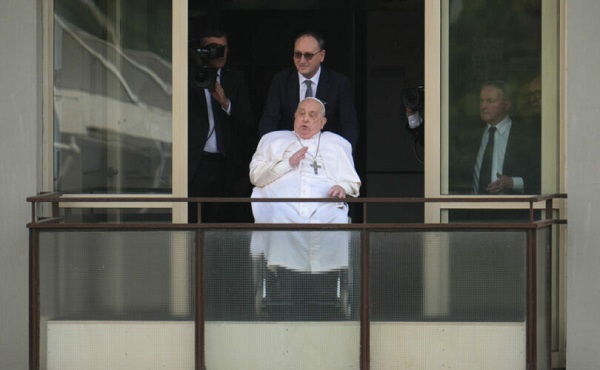
 International1 day ago
International1 day agoPope Francis appears frail as he returns to Vatican following 38-day hospital stay
-

 Alberta1 day ago
Alberta1 day agoAlberta’s massive oil and gas reserves keep growing – here’s why
-
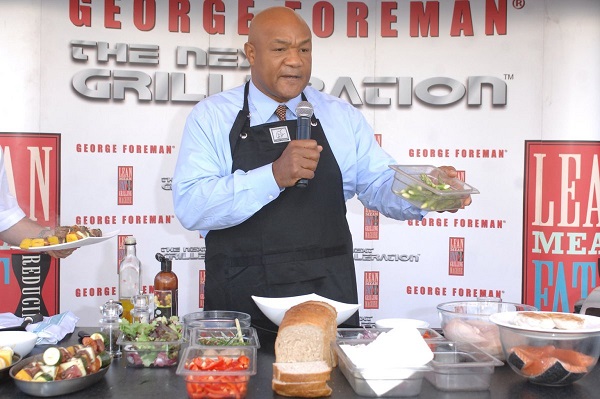
 Bruce Dowbiggin24 hours ago
Bruce Dowbiggin24 hours agoFrom Heel To Hero: George Foreman’s Uniquely American Story
-

 Health24 hours ago
Health24 hours agoDr. Pierre Kory Exposes the Truth About the Texas ‘Measles Death’ Hoax
-

 2025 Federal Election1 day ago
2025 Federal Election1 day agoCarney’s Cap on Alberta Energy Costing Canada Billions
-

 Artificial Intelligence17 hours ago
Artificial Intelligence17 hours agoApple faces proposed class action over its lag in Apple Intelligence
-

 International16 hours ago
International16 hours agoEurope Can’t Survive Without America




